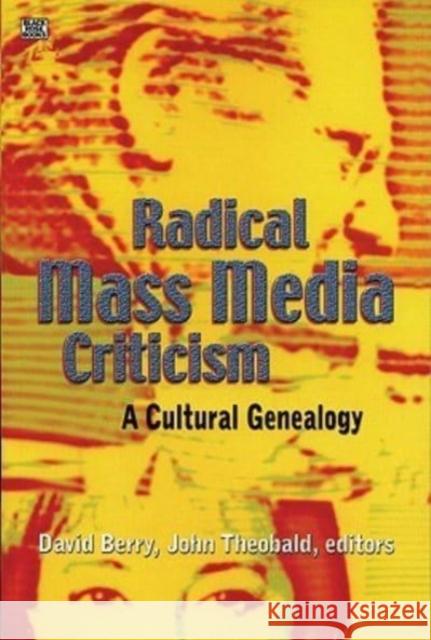Radical Mass Media Criticism – A Cultural Genealogy » książka
Radical Mass Media Criticism – A Cultural Genealogy
ISBN-13: 9781551642468 / Angielski / Miękka / 2023 / 272 str.
Since the beginning of the media age, there have been thinkers who have reacted against the increasing power of the mass media and perceived its ever-more-pervasive role in historical development. This book examines those early mass media critics and their controversial writings, and it links them with their contemporaries to demonstrate the relevance of their legacy for today's debates on media power and media ethics. Included in this book is a look at the work of Karl Kraus and his devastating critiques of the role of corrupt journalism in the First World War; at Ferdinand Tnnies' provocative analysis of the relationship between public opinion and propaganda; and at the Frankfurt School, especially Max Horkheimer and Theodor Adorno, in the shadow of the experience of Nazism. The Glasgow Media Group unmasks ideological bias in apparently objective news. The importance and influence of the much-contested figure of Marshall McLuhan is analyzed, as is the work of Robert McChesney and the United States' tradition from which his own writing and collaboration with fellow critical intellectuals Noam Chomsky and Edward Herman emerged. From Jess Martn-Barbero in Colombia and Nestor Garcia Canclini in Mexico, comes a perspective on globalizing mass communications practice. The media-critical work of Harold Innis, Northrop Frye, David Suzuki, Maude Barlow and the black American feminist writer, bell hooks, make this book truly one of the first full historical surveys of radical mass media criticism. Anthology contributors are a team of leading international experts in the field and, apart from the editors, include: Slavko Splichal, Hanno Hardt, Joost van Loon, Stuart Allen, JasonBarker, John Eldridge, Robert McChesney, James Winter and Cynthia Carter. David Berry is senior lecturer in journalism, culture and mass communications and John Theobald is associate professor in modern languages, both at the Southampton Institute, U.K.











